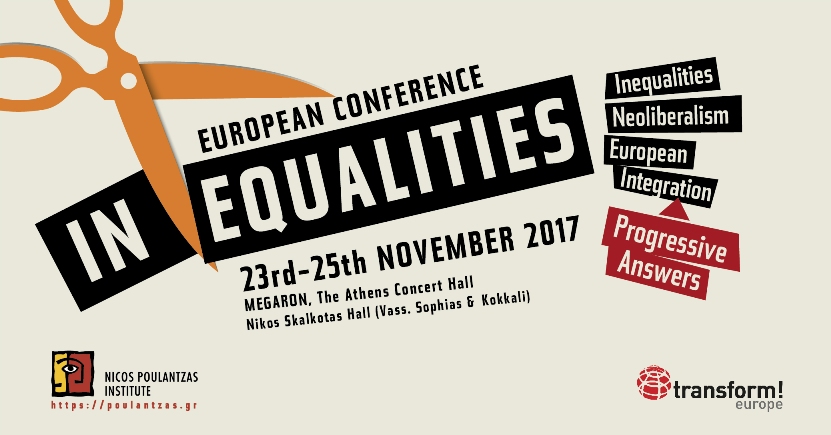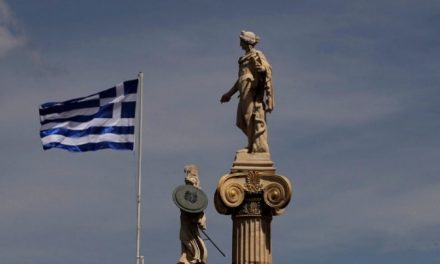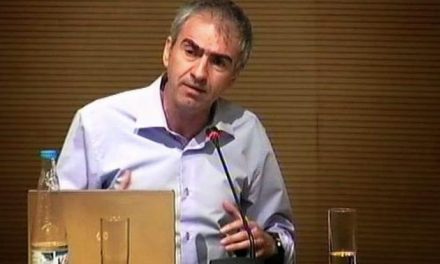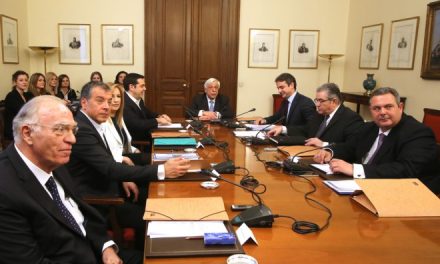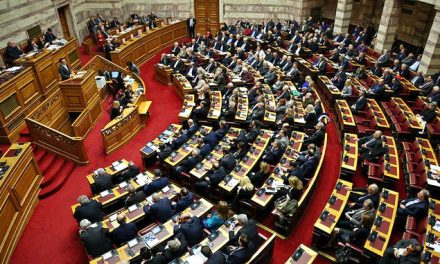Theano Fotiou, Alternate Minister for Social Solidarity spoke at the “Inequalities, Neoliberalism and European Integration: progressive responses” Conference (Athens 23-25 November) on “Inequalities and social state in Greece”, outlining government actions on the area of social protection during the past 2.5 years.
As Fotiou pointed out, when the economic crisis broke out in Greece in 2008, it found a country that already had, since the times of prosperity, extremely high inequality rates, the highest among member-states. So, from 2008 to 2015, with the imposition of the memoranda and the policies of austerity, an already bad situation worsened, as the uneven distribution of income went from 33.4% to 34.2%, according to the Hellenic Statistical Authority (ELSTAT) data, while the population at risk of poverty and social exclusion rose from 28.1% in 2008, to 36% 2014 -which means 3,9 million people. In 2015, when SYRIZA took over the government, the country had already lost 25% of its GDP, and unemployment had reached 27%.
As far as welfare is concerned, in 2015 expenditure was at € 780,000. According to Fotiou, this amount was doubled to € 1,57 million in 2017 and is expected to reach € 2,57 million in 2019 while the social solidarity portfolio accounts for only 4% of GDP. As the minister stressed, “investment in social services is an investment in growth; we must oppose the neoliberal model which considers that money that goes to social spending does not contribute to growth. Modern studies have shown that social transfers act as a financial multiplier: each euro for social services increases GDP by 1.03 to 1.68%. I often address the question of whether a portfolio for social solidarity is really necessary during a time of crisis. Those who ask this have not yet understood that social solidarity is about all citizens; not just the vulnerable. You don´t have to chose between addressing the crisis or addressing poverty. On the contrary, you have to confront both by opening up new fields and establishing a welfare state that significantly contributes to development.”
The first law passed by the government in 2015 was the law on the humanitarian crisis, which was inspired by the unprecedented solidarity movement that emerged in Greece during the crisis: hundreds of informal solidarity structures, social clinics, pharmacies, markets without intermediaries, social kitchens, social schools and anti-eviction movements were organized to form an informal, and yet very effective civil society.
The law helps about 400,000 citizens living in extreme poverty. Benefits include prepaid bank cards, 300 kilowatt of free electricity per month, a free electricity reconnection, as well as a rent subsidy credited directly to the owner. In 2016 the law that allowed for 2,5 million uninsured citizens free access to healthcare was voted, as well as the law on free movement of the unemployed. In 2017 the ministry of Ministry of Labour, Social Insurance and Social Solidarity has established the Social Solidarity Income (KEA) scheme, a benefit received by 610,000 citizens that includes services such as food, kindergartens, healthcare, school meals and integration into work of 10% of the unemployed beneficiaries registered with Greek Public Employment Agency (OAED), which amounts to 13,000 jobs. Ten months after its implementation, as minister Fotiou notes, the scheme is deemed a success by the government as well as by lenders.
Overall, according to Fotiou, the third review concluded unexpectedly well, despite the enormous difficulties we experienced during six months. The government, claimed that all money that was saved from the Spending Review (reducing ministries’ expenses like consumables or travel expenses) be allocated exclusively to social benefit expenditure. The lenders approved 325 million of savings and the government allocated 315 of that money to the social benefit expenditure: 260 million for family allowances, 40 million for school meals and 15 million for new kindergartens.
The government’s expectation is that these measures, coupled with the reduction of unemployment and measures to combat unpaid and undeclared work, tax evasion and corruption, will improve the everyday life of the poorest citizens and mitigate inequality. According to the minister, it’s an estimation that will be reflected in the next ELSTAT reports of on national income for 2017 and 2018 (incomes of 2016 and 2017). For 2016 (2015 income), a small decrease in the population at risk of poverty or social exclusion has already been recorded, from 36% to 35.6%, which means 100.000 people.
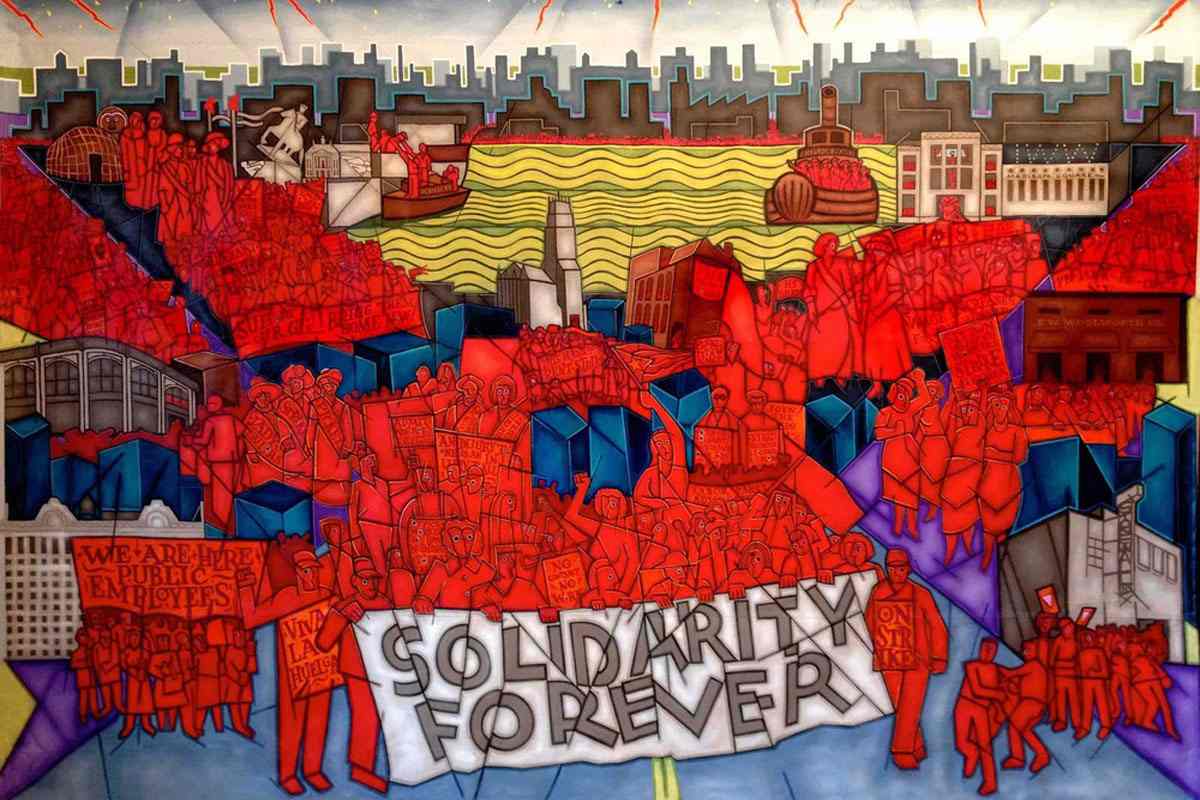
Minister Fotiou went on to highlight the changes planned for the Ministry of Labour, Social Security and Social Solidarity, such as the introduction of new departments like the Roma Secretariat, and the increase in the number of employees. As part of the ministry’s restructuring, the new welfare state will be organized on two main pillars: the National Mechanism for Integration and Social Cohesion and the transformation of old Farmers Insurance Fund (OGA) into a single authority for managing and awarding benefits, titled OPEKA (Organization for Welfare Benefits).
1st Pillar: National Mechanism for Integration and Social Cohesion (Community Centers)
The 175 Community Centers that exist today (to be increased to 240) will be at the core of a much needed information network, the National Mechanism for Integration and Social Cohesion, and they will perform a double function: On the one hand, they will operate as a front desk for the citizens providing them with all the information they need, and on the other they will provide they data the ministry needs in order to assess the effectiveness of the welfare system. The Centers will support a single nationwide network that aims to reduce bureaucracy through the interconnection of all state databases. Via the Centers, the citizens, by providing only their Tax Identification Number and Social Security Number, can have access to daily updated information on matter like their rights, any benefits they entitled to, employment positions in institutions operating in the area, opportunity of participation in European and Greek job programs, etc.
Organizationally above the Community Centers there are 13 Regional Branches, and at the top there is the newly established Directorate of Social Integration and Cohesion.
2nd Pillar: A single organization for Welfare Benefits (OPEKA)
According to the ministry’s new organizational chart, the old Farmers Insurance Fund (OGA) will be renamed OPEKA and will take over all welfare benefits, ensuring their regular and timely payment.
Other initiatives include the creation a network of integrated care for the elderly, named OFILI, whichwill connect the Senior Protection Open Centers with “help at home” programs and Senior Hospitality Open Centers.
Furthermore, 370 Roma camps and settlements have been mapped, and gradually people that live in these in camps under degraded conditions are being relocated.
By the end of January 2018, the Electronic Disability File will start operating as a pilot program, ending the lengthy and painful procedures people with disabilities went through to get their benefits: applying for benefit will be easy thanks to the online interconnection of all partner organizations. Also, conditions for allocating the benefit are not stricter: on the contrary, the new Single Disability Identification includes disabilities not previously provided for. Benefits will be awarded by OPEKA and no longer by the municipalities, allowing for a more transparent and efficient process.
A new program for the homeless envisages actions such as registering homeless people in the six largest cities in the country, interconnecting of all homeless structures with the ministry, creatiing new structures for the homeless, as well as for the addicts who are in the recovery phase. At the same time, the “Housing and Reintegration” program continues, under new terms, including not just families but also individuals, as well as addicts in rehabilitation and people just out of prison.
A very important issue, child poverty is also being addressed. Minister Fotious noted that material deprivation among children went from 12.2% in 2009 to 26.7% in 2013. The government has made school meals a state law, and from this year on 130,000 children will be provided with a hot meal at school. By 2019 the number of children covered by this program will reach 500,000. Furthermore, the number of kindergarten vouchers has been increased from 70,000 to 110,000, 60,000 for children from poor and unemployed families. In 2018 the ministry plants to establish 400 new kindergartens for an additional 10,000 children.
Finally, the government has recently tabled the new adoption law, with a focus on de-institutionalization. As minister Fotiou acknowledged, today the state does not know how many children are in institutions, or even how many such institutions exist. The ministry is now at the process of registering all private institutions and NGOs: so far they recorded 1,600 foundations, not counting religious institutions. With this new law, once a child enters an institution, within 48 hours, an electronic file of personal data will be formed and it will be part of the National Minority Register. Also, the necessary research for candidate parents will be completed at most within 3 to 4 months. The law aims at decongesting the institutions, dealing with waiting lists, providing transparency the adoption process and give hope to thousands of families who want to have a child and have given up.
See also:
- Fighting inequality from the position of a left-wing governmental responsibility
- Government to roll out nationwide Social Solidarity Income scheme
Sources:
- Theano Fotiou´s speech at the “Inequalities, Neoliberalism and European Integration: progressive responses” Conference
- Theano Fotiou´s interview with Synday newspaper “Epohi” (10.12.17): “You have to deal with crisis and poverty at the same time”
Translated and edited by Anna-Maria Tsakou and Ioulia Livaditi


